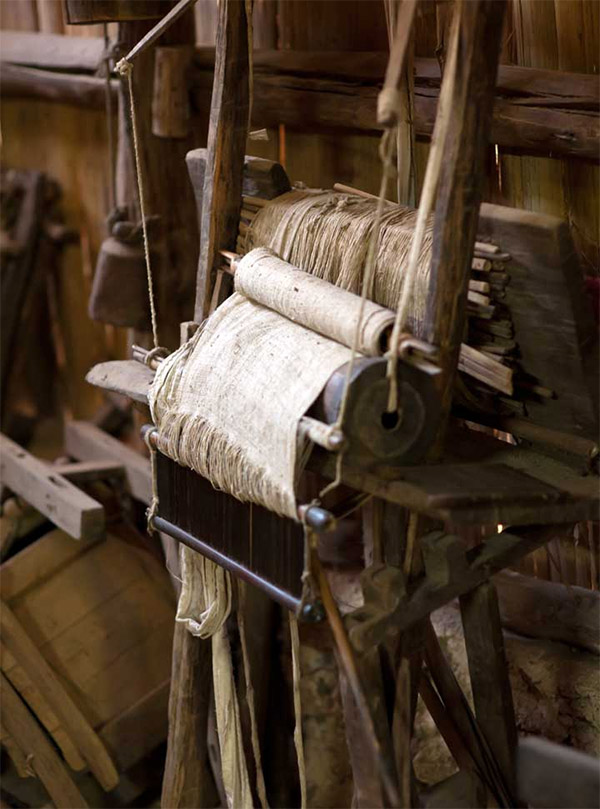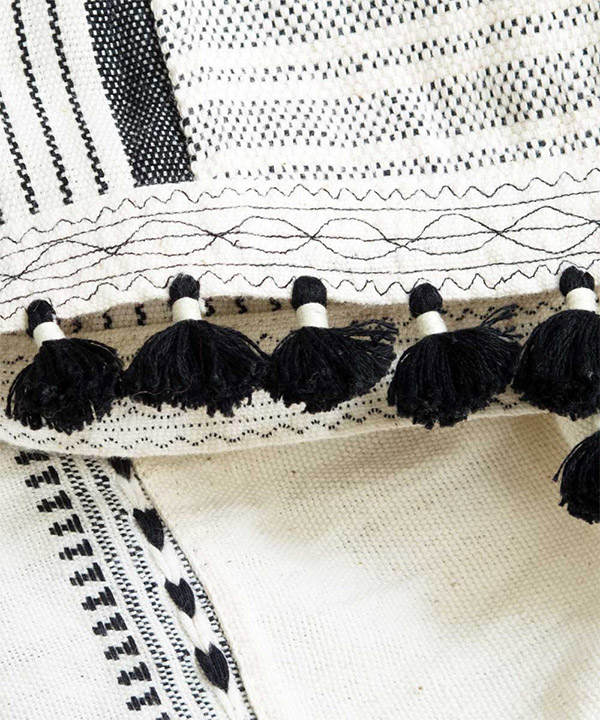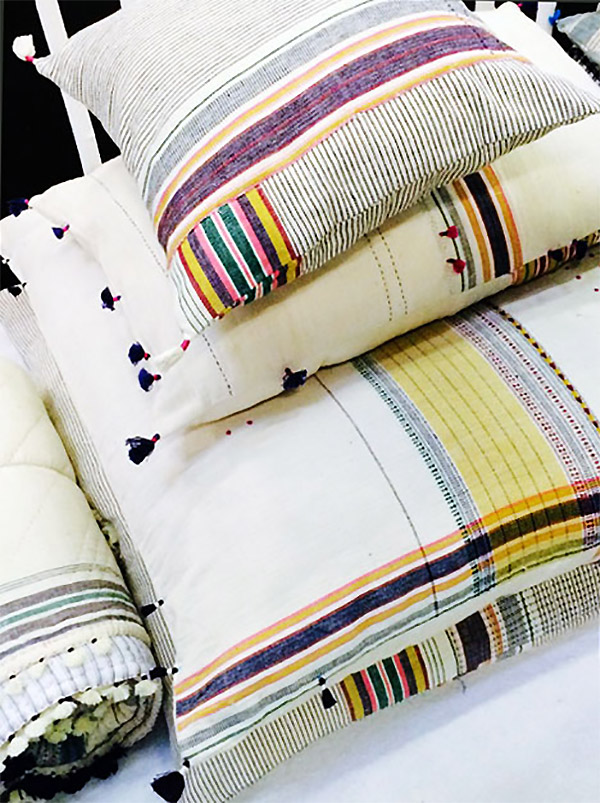Hand-woven design from China Farooqui’s label ‘Injiri’.
Jacquin: What is inspiring you creatively at the moment?
Chinar: I am most inspired by vintage aesthetics, specifically in the way traditional people use textiles and the way they sew their garments. I am drawn a lot to Moroccan and Turkish textiles at the moment, as well. The inspiration for most of my garments comes from the local dressing styles of rural India and other folk cultures from around the word. It is the simplest work clothes of peasants, farmers and common man that inspires me most.
“Being a student of textiles, I love the hand-loom. It’s more about celebrating the entire process of hand-weaving – and the clothes are actually little stories about the textiles they are made of.” ~Chinar Farooqui
Jacquin: How did you develop your new collections? I would love to learn about the process.
Chinar: I design the textiles first with impressions I have in mind – these are usually visuals impressions that are carried with me from my travels. I do a set of drawings and illustrations as I develop each collection. I then sit with the weavers to interpret the visuals and drawings. I use their traditional textiles as references for techniques that I’d like to use from their existing vocabulary. This helps tremendously – as in India traditional textile techniques are region specific (like most places around the world). I develop all the patterns in close association with the weavers who then replicate it for production.
Injiri’s new collection ‘Ahir’ (above) features bold and bright colors. Ahir is the namesake of the Ahir caste, and ethnic group migrated into India from Central Asia during the early Christian era. For generations they have been farmers, herders, and warriors. The elaborate costumes of the Ahir women have infused bright colors into the new Injiri home collections.
Jacquin: I had the opportunity to live in Jaipur (India) for a few months and I really enjoyed it. It’s such a beautiful and traditional city. How does life in Jaipur, Rajasthan influence you as an artist?
Chinar: Jaipur is extremely relaxed and full of traditional crafts. There are still many living traditions in Jaipur that artists can work with. I think my work is mainly influenced by the folk costumes and traditional textiles of Jaipur – but in terms of developing a local skill, there is only one collection in which I worked with the block printers from the city of
Jaipur. I generally like the feel of living in Jaipur, which can be a very inspirational place.
Injiri’s new collection ‘Recycle’ (below) has a traditional North Indian essence with a modern spin. The Recycle collection is created with leftover fabrics from weavers’ workshops throughout Gujurat and Rajasthan. Threads of cotton are first dyed into different shades of indigo blue, then tufted by hand and sewn into pillows and rugs. The rough and shaggy texture of this collection brings a down-to-earth feel, delightfully refreshing and free-spirited.
Jacquin: You’ve mentioned that you also take inspiration from other folk cultures outside of India? Which other cultures have you looked to for inspiration?
Chinar: I often look to traditional work clothes from Europe for inspiration. There is a museum in Birgimghan where I spent many days studying traditional European smocks. I think that was a big influence on the way I looked at the traditional clothing world. Although it’s a different inspiration than provided with Indian dress, there is still a common thread that links the way folk costumes have been cut and sewn and its usage globally.
Jacquin: What would a perfect day be like for you?
Chinar: Textile and garment design are close to my heart, so it’s important that I spend time creating. A perfect day is on in which I have achieved enough in terms of my creative work. Since my work involves many other aspects of business, I do have days in which I do not find enough time to do creative things – and therefore I really have to strike the right balance.
Shop Chinar Farooqui’s new Injiri collections ‘Ahir’ and ‘Recycle’ through Minzuu, an excellent globally inspired boutique. Also, learn more about Minzuu and their unique global model in my recent interview and home tour with founder Yilan Song. Have a lovely weekend!







